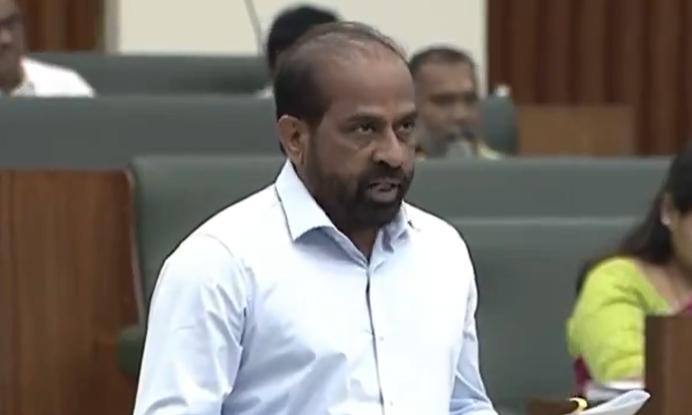Business
GST Reforms to Enhance Public Healthcare in India

Health Minister Satya Kumar Yadav announced significant reforms to the Goods and Services Tax (GST) that will take effect from Monday, heralding a new era for public healthcare in India. The changes aim to reduce the financial burden on individuals seeking health insurance, particularly benefiting the lower and middle-income groups.
The most notable reform is the removal of the 18 percent GST on health insurance premiums. This decision is expected to assist millions of individuals in obtaining necessary insurance coverage. Yadav emphasized that the reforms also lower prices on critical medications, including those used in cancer treatment and rare diseases. Additionally, the costs of vaccines and diagnostic kits for diseases such as HIV, hepatitis, and tuberculosis have been significantly reduced.
In his remarks, Yadav pointed to an assembly resolution that supports these reforms, stating that the central government’s actions reflect a strong commitment to enhancing healthcare access. He highlighted the ongoing efforts to roll out a new Universal Health Policy in Andhra Pradesh, assuring citizens that they will not face additional financial burdens when seeking medical care.
Yadav praised the reduction of GST slabs for small traders, calling it a “courageous” move by Finance Minister Nirmala Sitharaman. He described the reforms as visionary, noting that they would alleviate the tax burden on small businesses and promote economic growth. This would ultimately provide relief to the middle class and lower-income families, who often struggle with the costs of healthcare and other essentials.
Environmental Initiatives by South Central Railway
In a separate but related initiative, the Vijayawada Division of South Central Railway has launched a tree plantation drive as part of the ongoing “Swachhata Hi Seva – 2025” campaign. From September 17 to October 2, 2025, the railway division organized a large-scale event, planting 425 saplings across 41 locations, including railway stations, hospitals, and major facilities.
This effort engaged over 556 participants, including railway officials, staff, families, and volunteers, all demonstrating a collective commitment to environmental sustainability. Divisional Railway Manager Mohit Sonakiya remarked that each sapling represents not only an environmental effort but also an investment in a healthier future. He encouraged everyone involved to integrate cleanliness and environmental protection into their daily lives, reinforcing the railway’s dedication to a greener network.
Through these initiatives, both the healthcare reforms and the environmental drive reflect a broader commitment to improving the quality of life for citizens in India. The changes in GST are poised to make healthcare more affordable, while the tree plantation campaign underscores the importance of sustainability in public initiatives.
-

 World5 months ago
World5 months agoSBI Announces QIP Floor Price at ₹811.05 Per Share
-

 Lifestyle5 months ago
Lifestyle5 months agoCept Unveils ₹3.1 Crore Urban Mobility Plan for Sustainable Growth
-

 Science4 months ago
Science4 months agoNew Blood Group Discovered in South Indian Woman at Rotary Centre
-

 World5 months ago
World5 months agoTorrential Rains Cause Flash Flooding in New York and New Jersey
-

 Top Stories5 months ago
Top Stories5 months agoKonkani Cultural Organisation to Host Pearl Jubilee in Abu Dhabi
-

 Sports4 months ago
Sports4 months agoBroad Advocates for Bowling Change Ahead of Final Test Against India
-

 Science5 months ago
Science5 months agoNothing Headphone 1 Review: A Bold Contender in Audio Design
-

 Top Stories5 months ago
Top Stories5 months agoAir India Crash Investigation Highlights Boeing Fuel Switch Concerns
-

 Business5 months ago
Business5 months agoIndian Stock Market Rebounds: Sensex and Nifty Rise After Four-Day Decline
-

 Sports4 months ago
Sports4 months agoCristian Totti Retires at 19: Pressure of Fame Takes Toll
-

 Politics5 months ago
Politics5 months agoAbandoned Doberman Finds New Home After Journey to Prague
-

 Top Stories5 months ago
Top Stories5 months agoPatna Bank Manager Abhishek Varun Found Dead in Well









